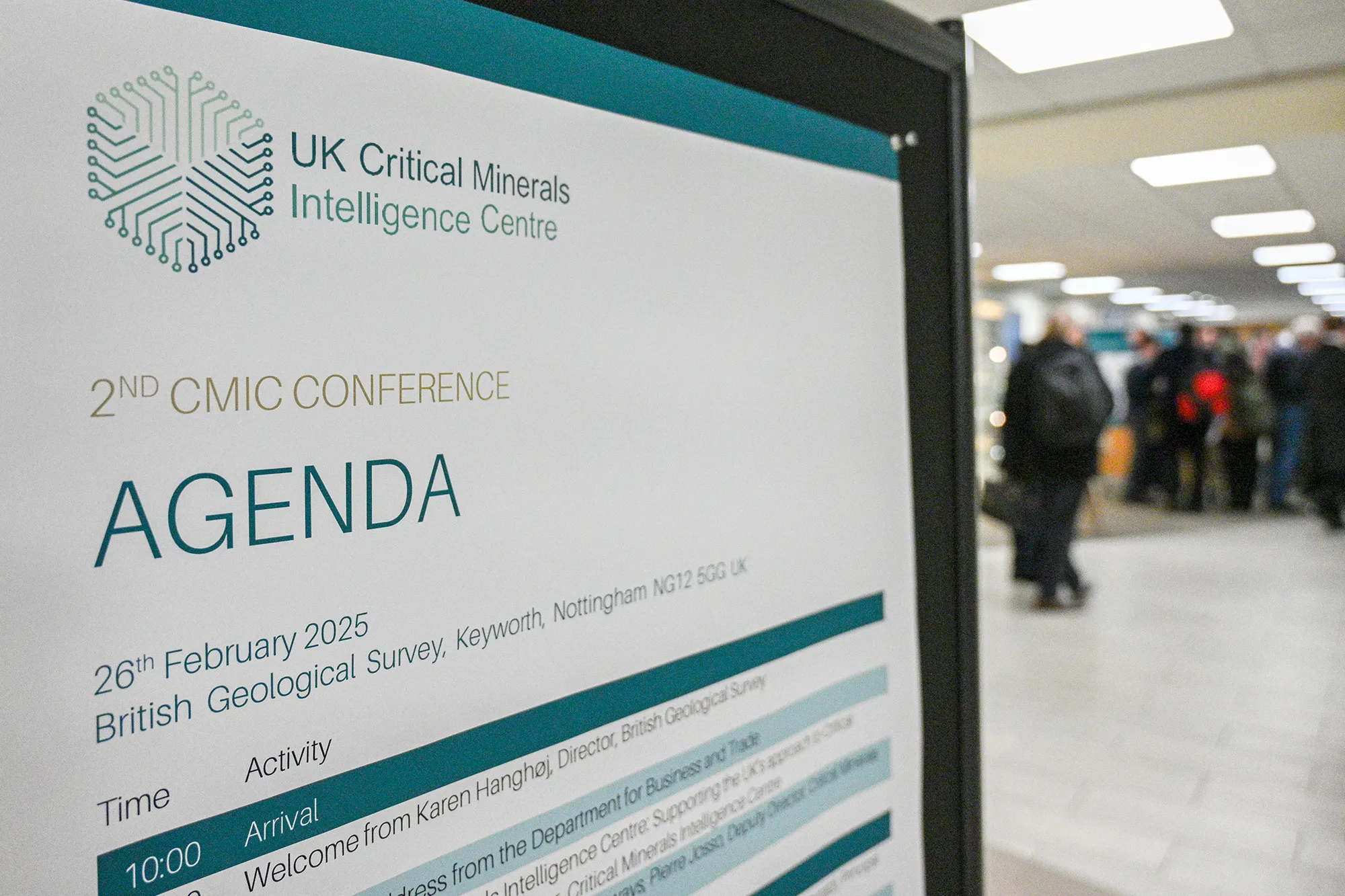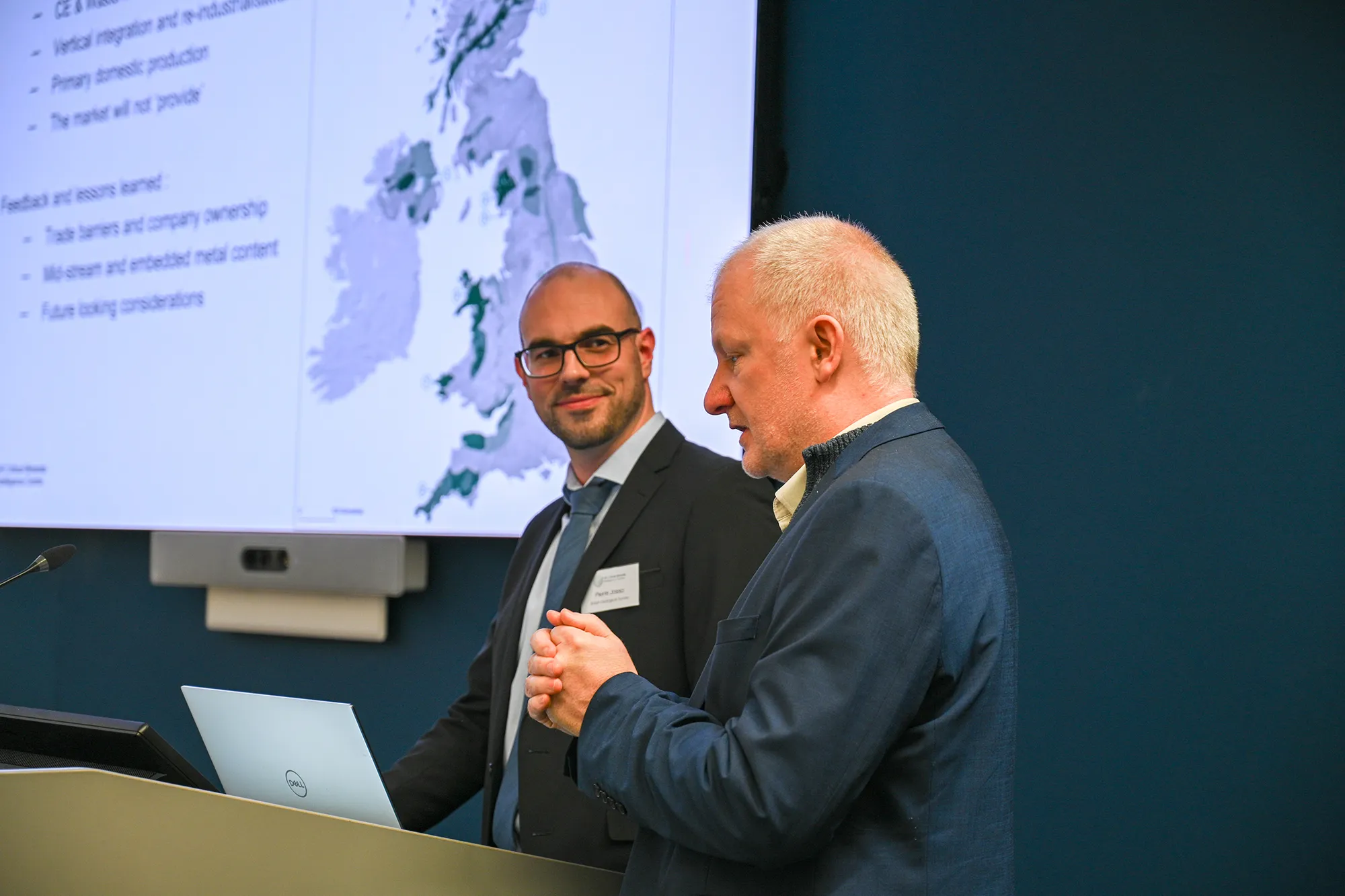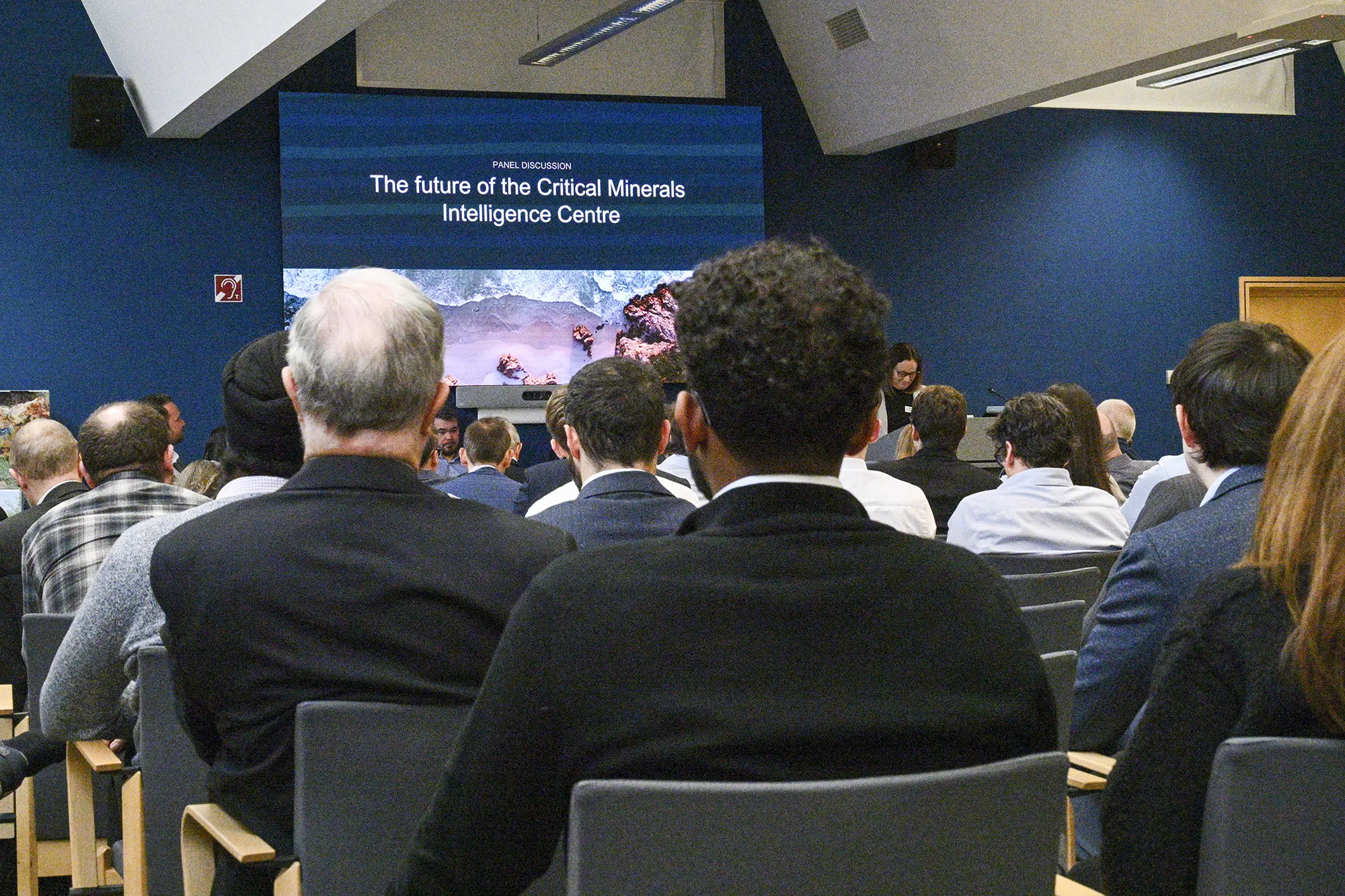Critical Mineral Intelligence Centre hosts second conference
The Critical Minerals Intelligence Centre conference took place at BGS’s headquarters in Keyworth, Nottinghamshire.
28/02/2025 By BGS Press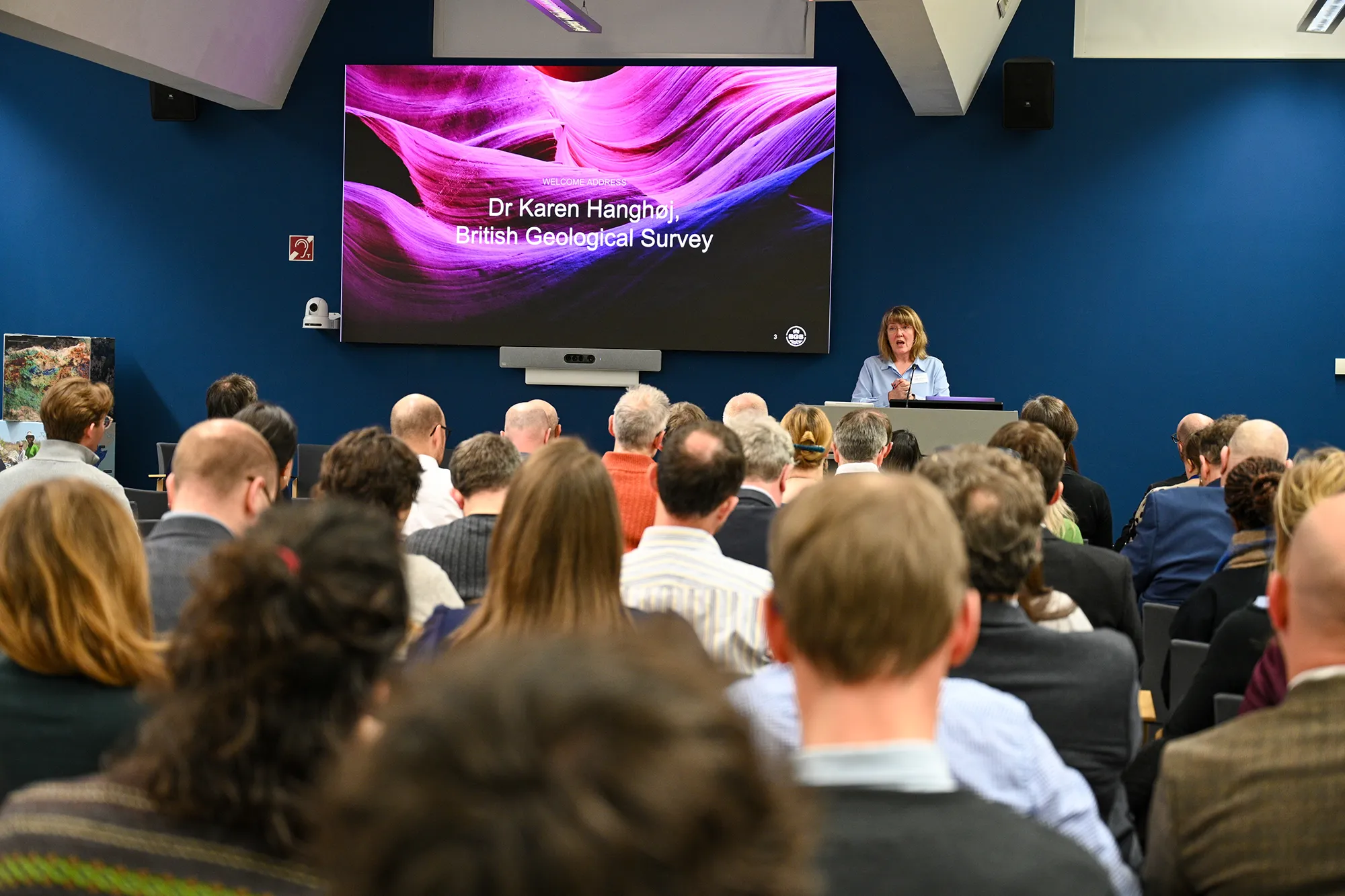
Hosted by BGS and supported by the Department for Business & Trade (DBT), the UK Critical Minerals Intelligence Centre (CMIC) delivers authoritative, impartial and independent, up-to-date data, information and analysis about critical minerals for the UK’s economy.
CMIC’s second conference, which took place on Wednesday 26 February 2025, showcased and provided the opportunity to discuss the research and analysis that CMIC has delivered. The 2025 UK Criticality Assessment was one of the main topics of the event. The report builds on robust, CMIC-developed methodology and was released at the end of 2024. Thirty-four minerals are classified as critical, providing foundations for future UK policy and investment, as well as for foresight studies highlighting vulnerabilities in the supply chains of minerals critical to the growth of decarbonisation technologies in the UK to 2050.
Dr Karen Hanghøj, BGS Director, opened the conference by providing an overview of current supply risks for critical minerals and the role BGS and its wider minerals research can play.
The supply of minerals is essential to our economy and society and security of supply has never been more important. The work of CMIC and the wider BGS is important in addressing many of the challenges that we currently face. Through our role hosting CMIC, we continue to build on and expand our legacy expertise and provide impartial knowledge, data and research to Government and industry.
Dr Karen Hanghøj, BGS Director.
Sarah Jones MP, Minister of State for Industry at DBT, then provided a virtual address, acknowledging the substantial increase in the supply of critical minerals required to meet the growing demand.
This second CMIC conference is a great opportunity to reflect on the research released since the first conference in 2023. Both criticality assessments and foresight studies play important roles in understanding supply risk and in advising industry and Government. We understand which minerals are critical and, looking ahead, evaluate to what extent the UK can meet the demand needed for economic growth, decarbonisation and national security.
Dr Gavin Mudd, CMIC Director.
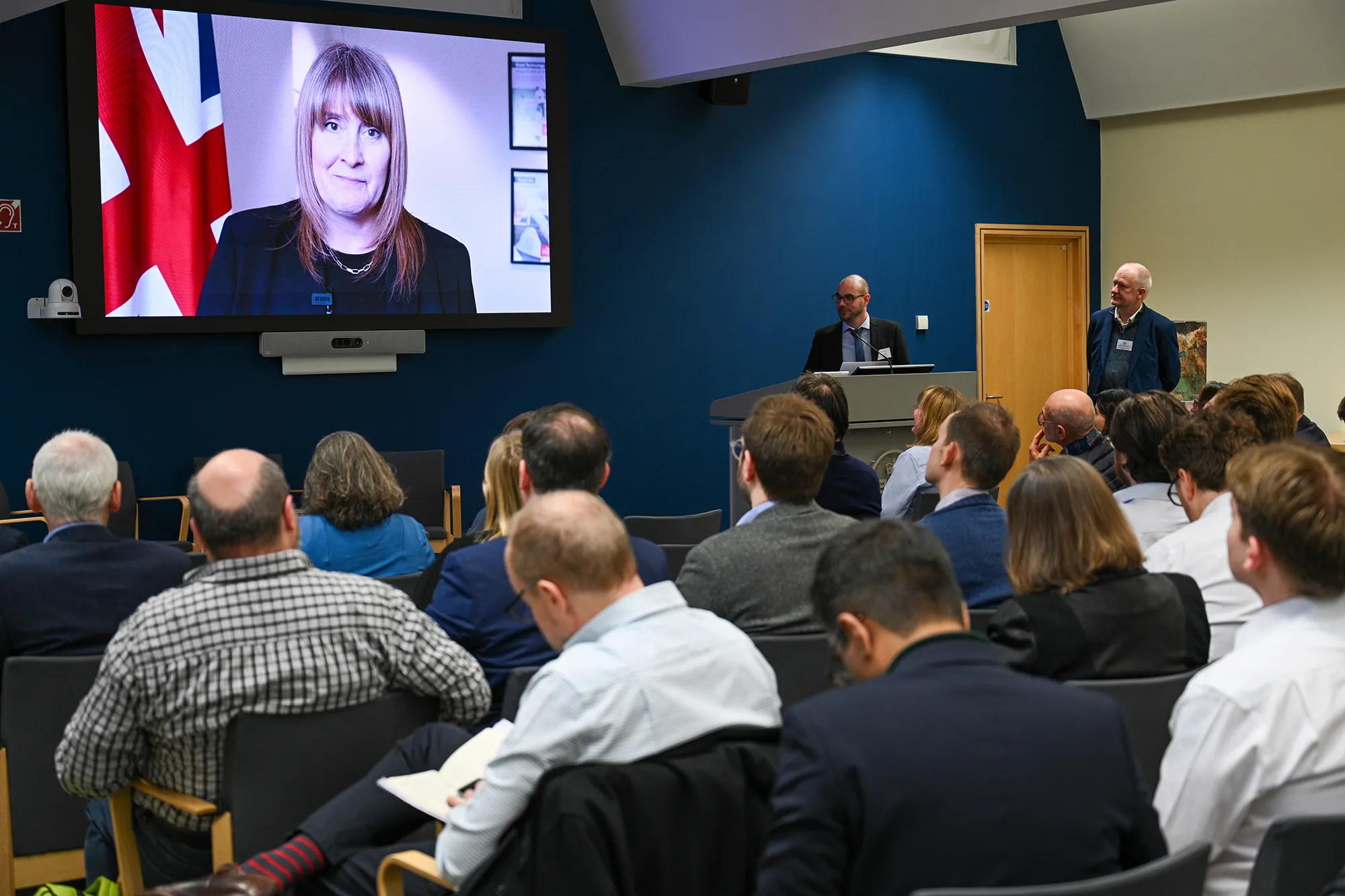
Sarah Jones MP, Minister of State for Industry at DBT, providing a virtual address at the CMIC conference. BGS © UKRI.
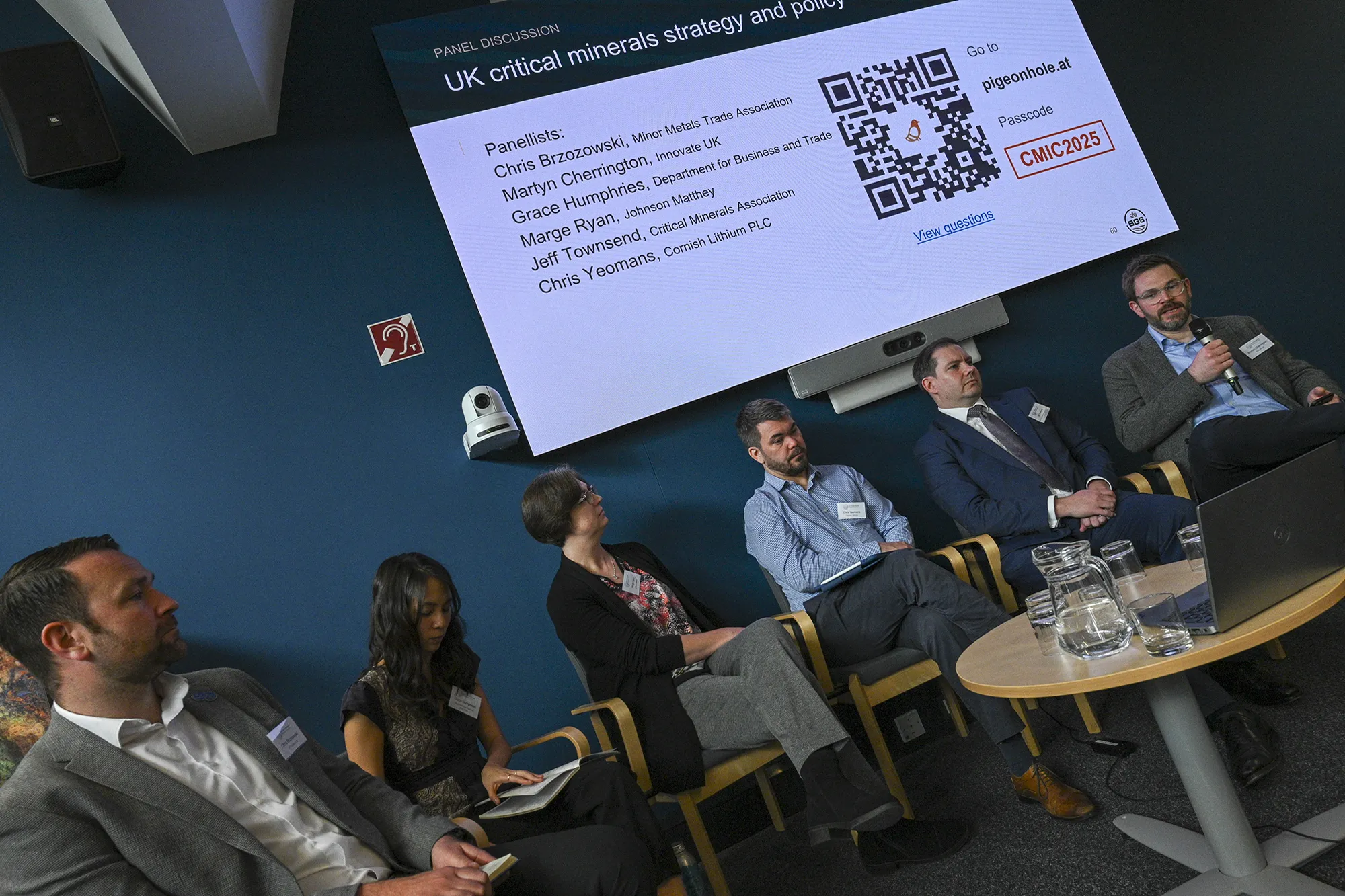
Panel discussion at the CMIC conference about the UK critical minerals strategy and policy. BGS © UKRI.
Dr Pierre Josso, deputy director at CMIC, presented key findings from the UK 2024 criticality assessment. Dr Evi Petavratzi, senior mineral commodity expert at BGS, looked ahead to the UK’s future as she spoke about the outcomes of the CMIC foresight studies. The foresight studies estimate which materials will be required by decarbonisation technologies to meet the UK’s net zero goals and highlight the challenges faced in meeting demand. An expert panel discussion around foresight studies capped the morning agenda.
In the afternoon there were two expert panels: the first discussed the UK critical minerals strategy and policy, whilst the second discussed the future of CMIC. Simon Thompson, BGS Board member, then brought the conference to a close, reinforcing the great value that CMIC’s research work brings to the UK Government and policymaking around critical minerals.
The UK Critical Minerals Intelligence Centre (CMIC) supports the UK in securing adequate, timely and sustainable supplies of the minerals and metals it requires to transition its economy in the coming decades to net zero emissions.
Led by BGS with support from the Department for Business & Trade (DBT), we work together with universities and private and public sector partners to gather and analyse intelligence on the supply and demand of critical minerals, their global value chains and use by UK industry. Our aim is to guide decision making by Government and industry to mitigate risks to supply security, helping to deliver economic prosperity and create opportunities for UK businesses in critical mineral supply chains, domestically and internationally.
The Department for Business & Trade (DBT) unifies what was the Department for International Trade and the business-facing parts of what was the Department for Business, Energy & Industrial Strategy (BEIS).
It brings sector, market and regulation experts together with world-class trade negotiators and business-support teams across the UK and overseas. This is to make the UK the best place to start and grow a company, helping create the business growth that contributes to better jobs and higher wages and living standards.
Relative topics
Related news
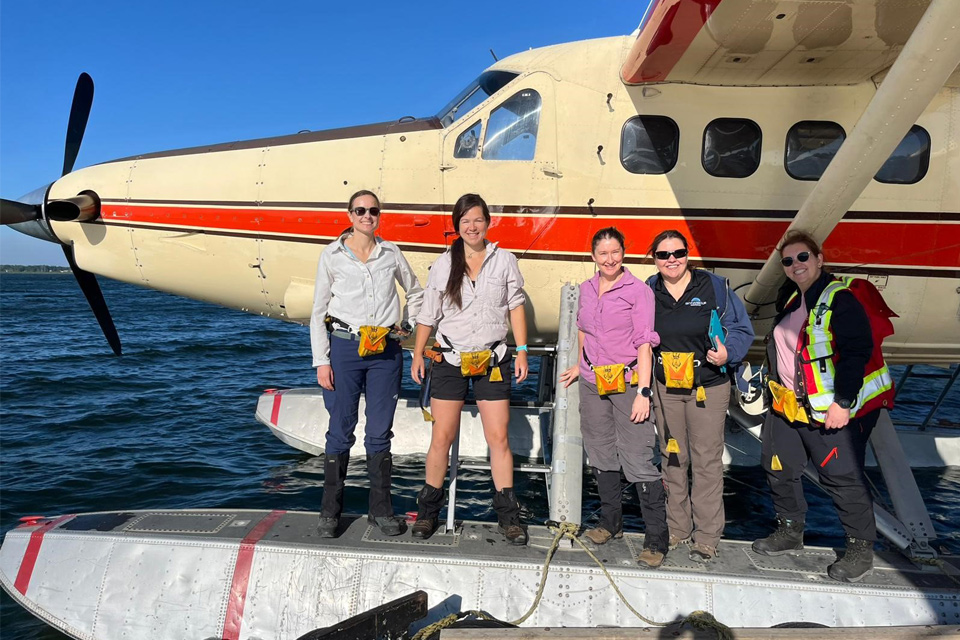
Funding awarded to UK/Canadian critical mineral research projects
08/07/2025
BGS is part of a groundbreaking science partnership aiming to improve critical minerals mining and supply chains.
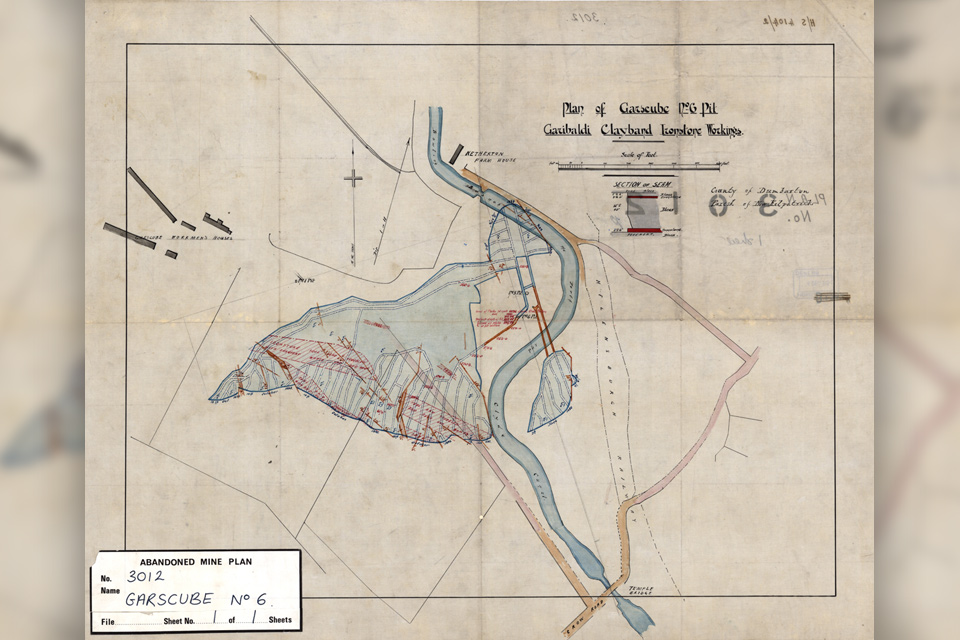
Release of over 500 Scottish abandoned-mine plans
24/06/2025
The historical plans cover non-coal mines that were abandoned pre-1980 and are available through BGS’s plans viewer.
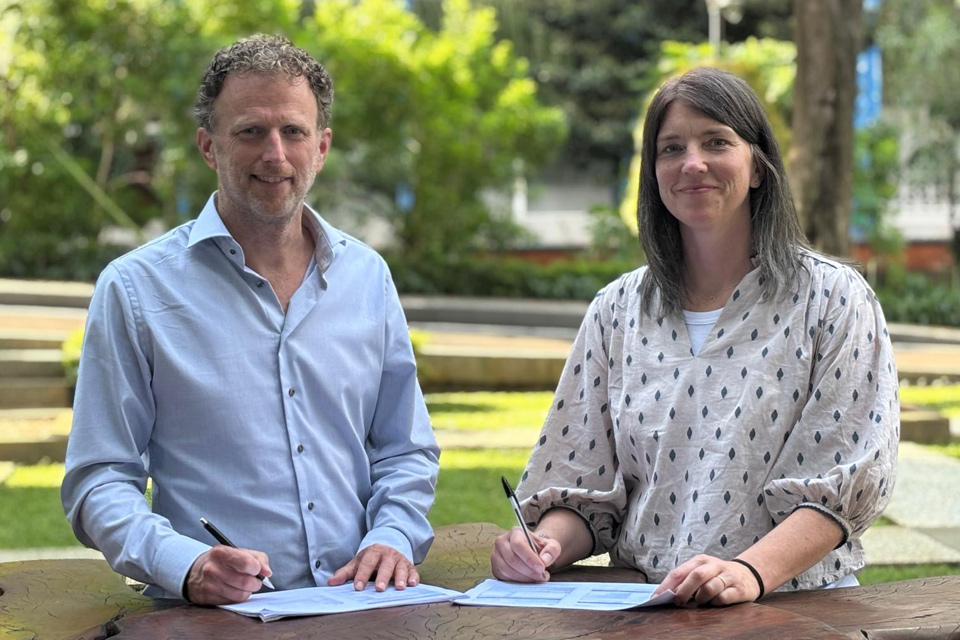
New collaboration aims to improve availability of real-time hazard impact data
19/06/2025
BGS has signed a memorandum of understanding with FloodTags to collaborate on the use of large language models to improve real-time monitoring of geological hazards and their impacts.

Modern pesticides found in UK rivers could pose risk to aquatic life
17/06/2025
New research shows that modern pesticides used in agriculture and veterinary medicines have been found for the first time in English rivers.

Goldilocks zones: ‘geological super regions’ set to drive annual £40 billion investment in jobs and economic growth
10/06/2025
Eight UK regions identified as ‘just right’ in terms of geological conditions to drive the country’s net zero energy ambitions.
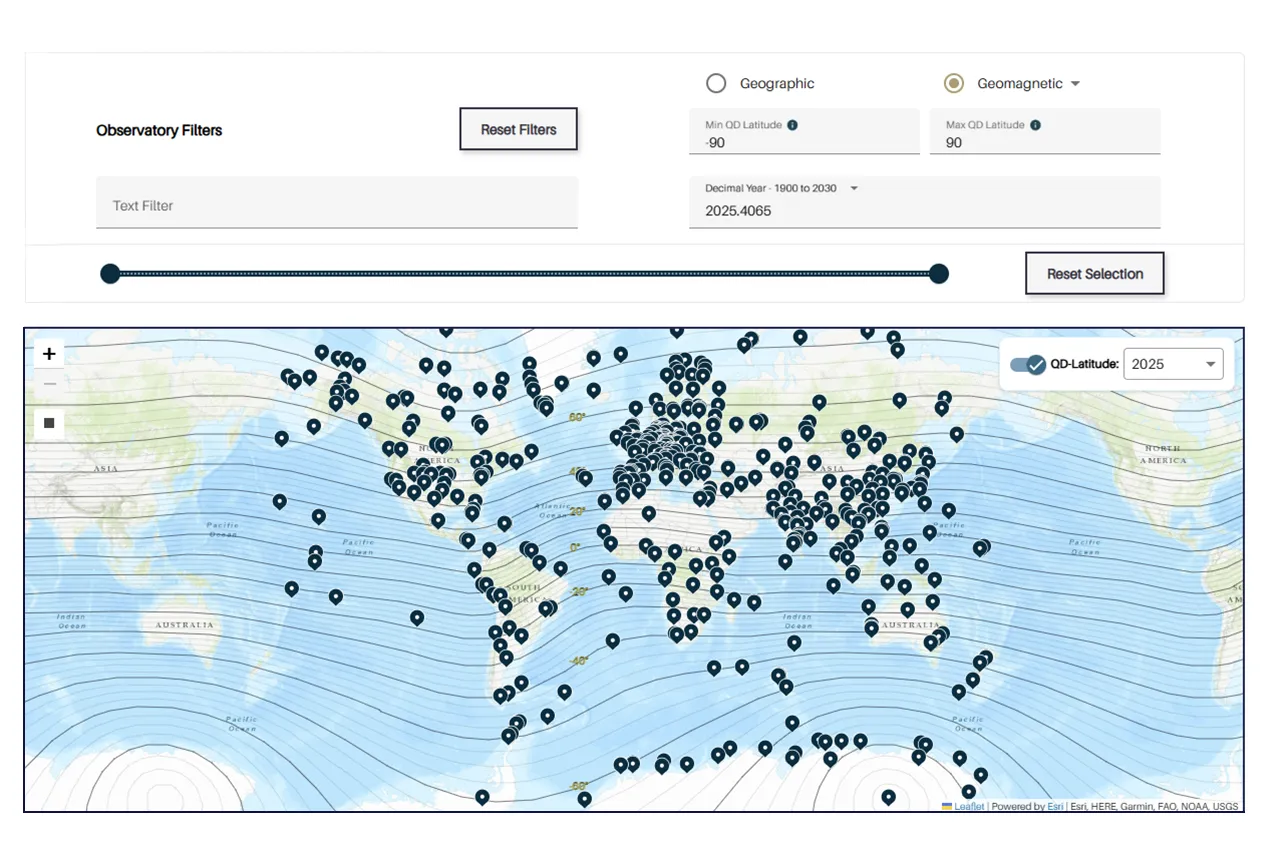
Upgraded web portal improves access to geomagnetism data
02/06/2025
BGS’s geomagnetism portal, which holds data for over 570 observatories across the world, has received a significant update.

BGS digital geology maps: we want your feedback
29/05/2025
BGS is asking for user feedback on its digital geological map datasets to improve data content and delivery.

What is the impact of drought on temperate soils?
22/05/2025
A new BGS review pulls together key information on the impact of drought on temperate soils and the further research needed to fully understand it.

UK Minerals Yearbook 2024 released
21/05/2025
The annual publication provides essential information about the production, consumption and trade of UK minerals up to 2024.

BGS scientists join international expedition off the coast of New England
20/05/2025
Latest IODP research project investigates freshened water under the ocean floor.

New interactive map viewer reveals growing capacity and rare earth element content of UK wind farms
16/05/2025
BGS’s new tool highlights the development of wind energy installations over time, along with their magnet and rare earth content.

UKRI announce new Chair of the BGS Board
01/05/2025
Prof Paul Monks CB will step into the role later this year.





